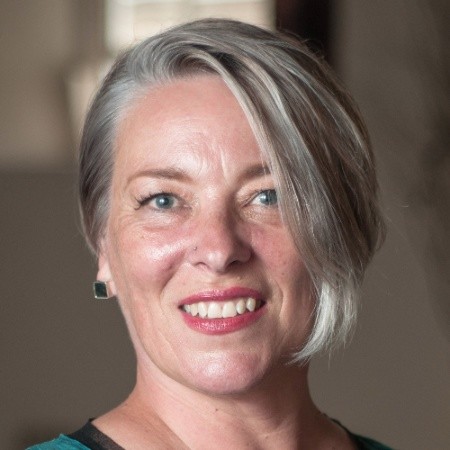Learn how high-performance energy building codes, including the NBC and NECB, can support sustainable construction and energy efficiency in Indigenous communities
Not yet an EP Member?
Click here to learn more!
This course, developed in partnership with building science experts, provides participants with a clear understanding of the National Building Codes (NBC) and National Energy Codes of Canada for Buildings (NECB).
Participants will explore the structure, purpose, and importance of these codes, as well as the benefits of adopting high-performance energy building codes within Indigenous communities. The training equips learners with the knowledge needed to support sustainable, energy-efficient construction practices and strengthen community resilience.
This training was developed thanks to the financial support of Natural Resources Canada

ECO Canada has developed an Energy Management and Leadership Training Program to promote the adoption of high-performance energy building codes within Indigenous communities. This program consists of five modules designed to assist these communities in adopting, enforcing, and complying with energy building codes. Each module lasts approximately 7 hours and can be delivered independently or as part of an extensive one-week course.
Module One: National Building Code & National Energy Code of Canada for Buildings.
Participants will explore key provisions of the National Building Code (NBC) and the National Energy Code of Canada for Buildings (NECB), gaining an understanding of how these codes apply to construction and renovation projects.
Module Two: Practical Application of Codes in Indigenous Contexts
This module addresses the unique challenges faced by rural and remote communities. It provides participants with the knowledge and skills needed to apply building codes to housing projects within Indigenous contexts.
Module Three: Effective Communication & Stakeholder Engagement
Participants will develop communication and engagement skills essential for managing housing projects, fostering collaboration among stakeholders, and advancing the successful implementation of the NBC and NECB.
Module Four: Strategies for Enforcement & Compliance
This module focuses on practical approaches to monitoring, enforcing, and supporting compliance with building codes in Indigenous communities by providing effective tools and strategies.
Module Five: Leadership in Sustainable Community Development
Participants will learn to integrate sustainability into housing programs, mentor emerging leaders, and advocate for Indigenous-led policies in energy management and building code adoption.
Why This Training Matters
This program directly supports the goals of the Canada Green Buildings Strategy, which aims to decarbonize the building sector and build resilient, low-emission communities. By empowering Indigenous professionals with practical knowledge and leadership tools, this training helps accelerate the transition to stronger, culturally grounded building standards across Canada.


ECO Canada has developed an Energy Management and Leadership Training Program to promote the adoption of high-performance energy building codes within Indigenous communities. This program consists of five modules designed to assist these communities in adopting, enforcing, and complying with energy building codes. Each module lasts approximately 7 hours and can be delivered independently or as part of an extensive one-week course.
Module One: National Building Code & National Energy Code of Canada for Buildings.
Participants will explore key provisions of the National Building Code (NBC) and the National Energy Code of Canada for Buildings (NECB), gaining an understanding of how these codes apply to construction and renovation projects.
Module Two: Practical Application of Codes in Indigenous Contexts
This module addresses the unique challenges faced by rural and remote communities. It provides participants with the knowledge and skills needed to apply building codes to housing projects within Indigenous contexts.
Module Three: Effective Communication & Stakeholder Engagement
Participants will develop communication and engagement skills essential for managing housing projects, fostering collaboration among stakeholders, and advancing the successful implementation of the NBC and NECB.
Module Four: Strategies for Enforcement & Compliance
This module focuses on practical approaches to monitoring, enforcing, and supporting compliance with building codes in Indigenous communities by providing effective tools and strategies.
Module Five: Leadership in Sustainable Community Development
Participants will learn to integrate sustainability into housing programs, mentor emerging leaders, and advocate for Indigenous-led policies in energy management and building code adoption.
Why This Training Matters
This program directly supports the goals of the Canada Green Buildings Strategy, which aims to decarbonize the building sector and build resilient, low-emission communities. By empowering Indigenous professionals with practical knowledge and leadership tools, this training helps accelerate the transition to stronger, culturally grounded building standards across Canada.
Dans un esprit de respect, de réciprocité et de vérité, nous honorons et reconnaissons Moh’kinsstis, le territoire traditionnel du Traité 7 et les pratiques orales de la confédération des Pieds-Noirs : Siksika, Kainai, Piikani, ainsi que les nations Îyâxe Nakoda et Tsuut’ina. Nous reconnaissons que ce territoire abrite la Nation métisse de l’Alberta, la région 3 au sein de la patrie historique des Métis du Nord-Ouest. Enfin, nous reconnaissons toutes les nations qui vivent, travaillent et se divertissent sur ce territoire, et qui l’honorent et le célèbrent.
In the spirit of respect, reciprocity and truth, we honour and acknowledge Moh’kinsstis and the traditional Treaty 7 territory and oral practices of the Blackfoot confederacy: Siksika, Kainai, Piikani, as well as the Îyâxe Nakoda and Tsuut’ina nations. We acknowledge that this territory is home to the Métis Nation of Alberta, Region 3, within the historical Northwest Métis homeland. Finally, we recognize all Nations who live, work and play on this land and honour and celebrate this territory.